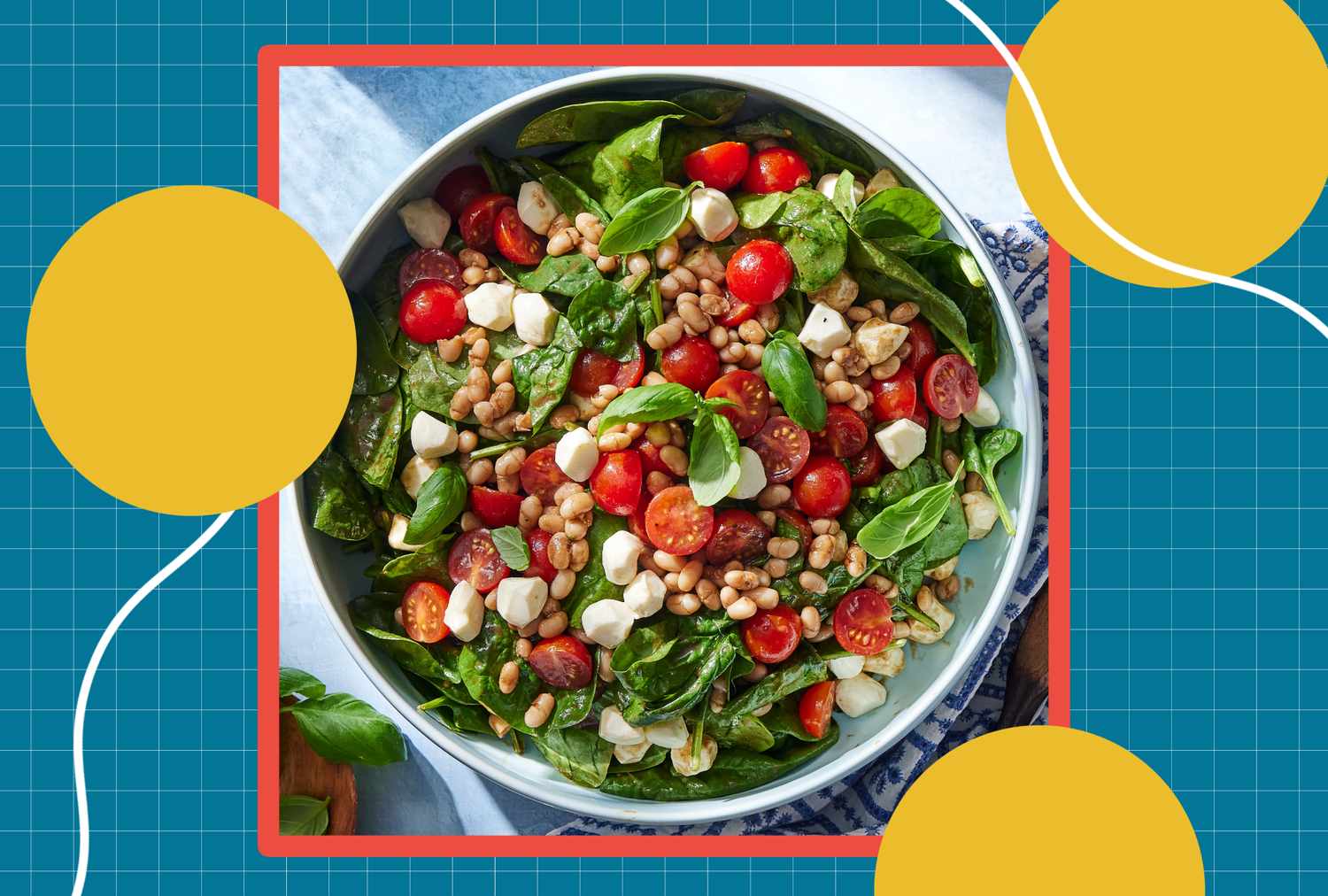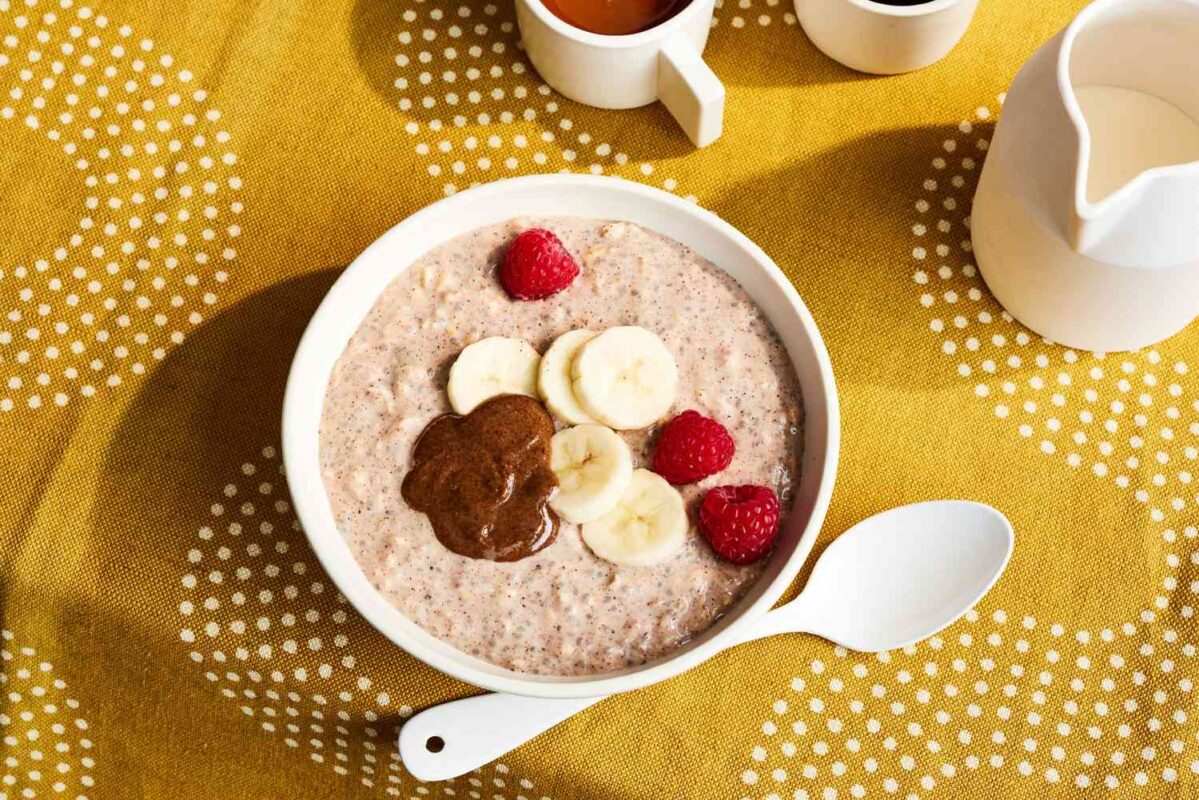Blog
The #1 Vegetable to Eat More Of to Reduce Visceral Fat

- Visceral fat is deep belly fat that can raise the risk of diabetes, heart disease and more.
- Eating carotenoid- and fiber-rich vegetables may help protect against this harmful fat.
- Spinach is packed with these compounds, making it a top choice for reducing visceral fat.
Visceral fat is the type of fat that lies deep in the abdomen and around the middle of the body. It’s linked to a long list of chronic health conditions like type 2 diabetes, cardiovascular disease, metabolic syndrome and cancer. Lifestyle habits like exercise, sleep and stress management can play a key role in the amount of visceral fat your body accumulates. So can the foods you eat, especially vegetables. While many vegetables can help protect against this stubborn belly fat, dietitians say the best one of all is spinach.
Read on to find out what makes this leafy green so powerful, plus other simple tips to reduce troublesome visceral fat.
Benefits of Spinach for Visceral Fat
May Combat Inflammation
Spinach is rich in powerful plant compounds called carotenoids, especially lutein and zeaxanthin. “Carotenoid-rich vegetables like spinach can potentially reduce visceral fat by increasing fat oxidation and reducing inflammation,” says Molly Synder, RDN, LDN. For instance, one study found that people with the highest serum concentrations of carotenoids in their blood, including lutein and zeaxanthin, had less visceral fat than people with the lowest levels.
Provides Fiber
“Carotenoid-rich vegetables [like spinach] are high in fiber and water, which promote fullness, reduce calorie intake and improve cholesterol levels often linked to visceral fat,” says Diane Han, M.P.H., RDN. In fact, research has found that people who eat a fiber-rich diet carry less visceral fat than those who consume little fiber. And spinach is a tasty way to get it. One cup of cooked spinach provides 4 grams of fiber or 14% of the 28-gram Daily Value.
May Inhibit Fat Storage
People with obesity tend to have lower levels of carotenoids in their blood. However, research shows that higher carotenoid levels could help reduce their visceral and total body fat. For instance, one study found that when people’s blood carotenoids rose, their body fat and waist circumference declined. While the exact reason isn’t known for sure, carotenoids from foods like spinach may prevent the buildup of fat, including visceral fat. More research is needed to understand the exact mechanisms behind this process. But tossing some spinach into your salad or an omelet could be a tasty way to trim deep belly fat.
Other Strategies to Reduce Visceral Fat
“Of course, carotenoids alone won’t cause fat loss, but regularly including carotenoid-rich vegetables like spinach in meals, along with protein, fiber and healthy fats, supports a metabolic environment that can help reduce visceral fat over time,” says Anar Allidina, M.P.H., RDN. For even more visceral fat-reducing power, try these dietitian-approved strategies:
- Get Moving. Both resistance training and aerobic exercise may be beneficial for reducing visceral fat. Fortunately, you don’t have to spend hours in the gym to reap their benefits. “Even short daily walks after meals reduce belly fat and blood sugar spikes,” says Allidina. The most important thing is consistency to prevent muscle loss over time.
- Eat Enough Protein. “Protein helps preserve lean muscle, supports metabolism and keeps you full,” says Allidina. The typical adult requires 0.36 grams of protein daily for each pound they weigh. For the biggest nutritional bang, eat a variety of protein-rich whole foods rather than supplements. And don’t forget fiber-rich plant proteins like beans, tofu, edamame and lentils, which can benefit gut health and promote satiety.
- Manage Stress. Living a high-stress lifestyle without the tools to manage it can take a toll on your health and contribute to excess visceral fat. That’s because stress increases cortisol, a hormone that promotes fat accumulation around the abdomen. Stress-management techniques that include mindfulness and relaxation may help keep cortisol in check. “Try deep breathing, yoga, journaling, time in nature or anything else that helps you feel calm and present,” says Allidina.
- Limit Added Sugars. It’s easy to eat too many added sugars, especially if you typically eat lots of highly processed foods or drink sugar-sweetened beverages. Trouble is, people who consume lots of added sugars tend to have more visceral fat than those who eat few added sugars. If you’re wondering how much is too much, stick with the Dietary Guidelines for Americans recommendations of no more than 10% of total calories from added sugars. That’s 50 grams of added sugars per day for someone who eats 2,000 calories daily.
Our Expert Take
Visceral fat can spell trouble for your health in all sorts of ways. Fortunately, certain foods can help reduce visceral fat or prevent it from creeping up in the first place. And spinach is a great place to start. In fact, spinach is dietitians’ favorite vegetable for reducing visceral fat. This nutritious leafy green is filled with carotenoids that may inhibit fat storage and fight visceral fat-promoting inflammation. It also provides fiber, which has been linked to lower visceral fat levels and helps keep you full and satisfied. Plus, spinach is super-versatile. Whether you like it blended into a smoothie, piled high in a leafy green salad, tucked into a sandwich or stirred into soup, pasta or eggs, there are countless ways to enjoy this good-for-you leafy green. So, toss a bunch in your shopping cart today!












